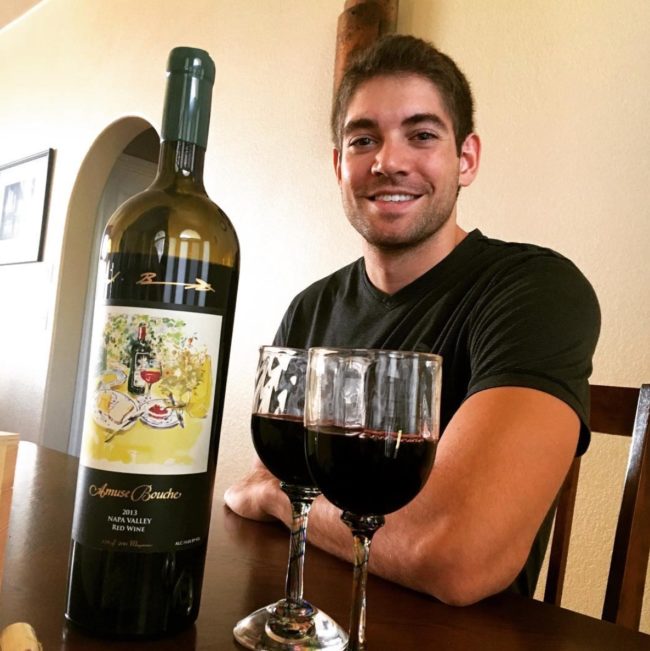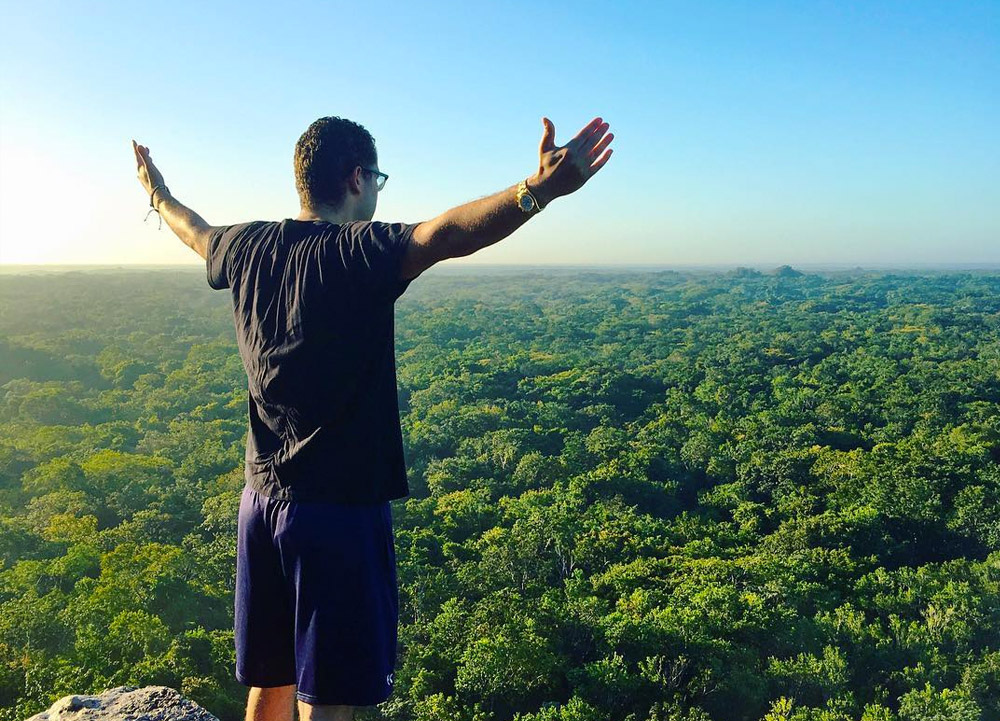Do poker players make better traders?
I constantly say I want dedicated students, not degenerate gamblers…
Retweet this ONLY if you’re FULLY prepared for trading today and promise to trade safely/like a sniper, NOT like a degenerate gambler who needs action
— Timothy Sykes (@timothysykes) April 27, 2020
But as it turns out, traders can learn a lot from the poker mindset — even if they never intend on actually playing cards. It’s similar to channeling the athlete mindset…
Then again, I’m not a poker player, so how do I know this?
Because I’ve found a pattern among several of my top students…
Before they were in the penny stock game, some were in the poker game.
Some of them started with cards and moved on to trading. One of these traders even funded his trading account through poker. Some still play to this day…
What’s up with the trading-poker connection, and how can other traders learn from it to improve their mindset?
Let’s explore…
Poker-to-Trading Pivots: Surprisingly Common…
When something happens once, it’s random. Twice, it’s a coincidence. But when it happens over and over, it’s a pattern.
You know I’m all about patterns when it comes to trading penny stocks.
But I’m also interested in patterns that potentially lead to trading success. So when I started to notice that several of my Trading Challenge students had a history of playing poker, I got interested.
As it turns out, I have at least four students with a background in poker. And all of them are killing it*…
Tim Grittani: From $9,000 Gambling Losses to Pro Trader
Most people know Tim Grittani as my multimillionaire student* and the creator of the mega-popular and influential DVDs “Trading Tickers” and “Trading Tickers 2.”
If you’re not familiar with his story, get up to speed — and get inspired — by checking out this blog post and this video:
Here’s the quick version … Grittani started trading with $1,500. He wasn’t profitable for his first nine months.
But he stuck with it — and he got serious about his education and tracking his trades. Gradually, things started to change for him.
Grittani joined my Trading Challenge in 2011. By 2013, he’d made his first million. Now, as of July 2021, he’s over $13.5 million in trading profits.*
Great story, right? But here’s what you don’t know…
Grittani’s Gambling History

Before Grittani was a millionaire — or a trader at all — he was a poker player.
In college, he looked for easy ways to make money … He found it hard to resist the lure of fast money gambling promised.
He did it all, from poker to sports betting.
Actually, he even got lucky and made $9,000 on a sports bet. But he eventually lost all his earnings on bad bets.
Losses like that can leave a big impression. It led Grittani to realize he wanted to pursue a path where he could have more of an edge.
Ultimately, his gambling losses helped point him in the direction of what would become one of the greatest passions of his life: trading.
Stephen Johnson: From Scrutinizing Players to Studying Charts
When Stephen Johnson started trading, he definitely fell into degenerate trader territory.
But a few years and lessons from some big losses have taught him well. He went from having to be physically restrained from overtrading to being a disciplined, data-monitoring machine.

Like Grittani, he also has a poker-playing past.
Stephen started playing poker in his native England. He says he quickly found an edge by becoming an observer — not just of the game but also of the players.
In tournaments, he saw that a lot of players played very loose, without a real strategy. They were just having fun.
Fine for them, but Stephen wanted to win. So he devised a disciplined, tight method of playing.
Aiming for Singles…
Like in trading, aiming for singles in poker wasn’t as fun as trying for home runs. But it was far more reliable than bleeding chips. He began winning about 70% of the time.
He didn’t know it then, but his strategy and power of observation would ultimately serve him well as a trader.
Fast-forward a few years … Stephen was living and working in Dubai and at an impasse in life. He’d just had a bad breakup. He didn’t like his job.
That’s when he found me.
Like my first millionaire student Michael Goode, Stephen was wary at first.*
But he figured that if he’d been good at poker, he’d probably be decent at day trading. So why not give it a try?
Stephen also thought if I were a scam, he’d expose me … And if not, he might just become wildly successful. To him, both options seemed gratifying.
Did his poker past guarantee instant success? No. But once Stephen was able to apply the same sort of discipline he’d used in poker, he started to find his trading stride. You can read more of his story here.
On an episode of the SteadyTrade podcast, Stephen goes in-depth about the connection between poker and trading. It’s a great episode…
Dan: Poker-Powered Trading

Dan is one of my most recent million-dollar profit students. As of early July 2021, he’s up over $1.4 million in trading profits.*
Dan pursued poker and trading concurrently — and saw plenty of parallels along the way.
He got into trading at a low point in his life. Dan wanted to find new opportunities … and he found me on YouTube.
But he went in too big too fast. He started by depositing $30,000 into a margin account so he could be over the PDT rule.
Then he made the mistake of thinking he wouldn’t lose. He was wrong. All traders lose sometimes. Between chasing losses and taking unnecessary risks, he quickly lost $12,000.
He then switched to paper trading for eight months so he could learn the ropes before he scaled back in with real positions.
Poker Parallels
Like with trading, Dan tried to start too big too fast with poker.
He says, “I lost $1,000 playing random games with $25–$100 buy-ins that I had no business being in … I had no experience playing poker and didn’t know what I was doing.”
Dan realized pretty fast he’d have to scale back his strategy.
He switched to tournaments with low $3 buy-ins, controlling his risk and gaining experience. That allowed him to learn the game and improve.
As he began to develop patience and adjust to the game, he was able to get more aggressive.
He slowly scaled up to $5 buy-ins, then $10, and scaled up to the higher-stakes games. As he tells me, “Before moving up in stakes, I made sure to win at least 100 buy-ins to prove to myself I had a real edge over many hundreds, if not thousands, of games.”
In both trading and poker, Dan found a more gradual approach allowed him to learn the rules. That helped him make smarter decisions. It’s a powerful lesson that has served him well.
John: From Gambler to Day Trading Dad

These days, John is an accomplished trader. He’s one of the traders in the Small Cap Rockets service, along with my top student Matthew Monaco. As of July 2021, he’s up over $480,000 in trading profits.*
And like the others in the post, before John was a day trader, he was a gambler.
He started with online poker. Then when the rules changed, John switched to counting cards at blackjack. He found some success. But after his son was born, he wanted to pursue something closer to home.
John found me — and an interest in trading.
He jumped into trading right away. He made some quick money … but it was a fluke. He went on to lose $16,000 over the next six months.
But then he remembered what had helped him in poker: finding an edge.
So, he started to get serious about his trading education. He started tracking his setups in a spreadsheet to see where he was making money.
About 11 months into his trading, he was in the green.*
But he admits it wasn’t easy. “It was much easier for me to be disciplined and do the right thing with poker. I’ve tried to contemplate the parallels to help with my trading discipline.”
He initially found his edge with OTC stock breakouts, and he’s continued to adapt since.
Check out this video he posted on Profit.ly about what he wished he knew when he started trading…
Does Poker Give Traders an Edge?

Poker-to-trading pivots aren’t unusual … But does a poker-playing past give traders an edge?
Every one of the traders featured in this post says poker helped speed up their learning curve and achieve the right mindset in trading.
But does that mean that all traders should play poker? Not necessarily.
Mastering the Poker Mindset: Important Lessons for Traders
Even if you never pick up a deck of cards, a few poker mindset concepts can help any trader. Here are a few big ones…
#1 Start Small
Dan’s story teaches us that starting too big too fast can cost you. He had to scale back big time to learn the ropes before he got more aggressive. Don’t think it can’t happen to you.
He says that poker taught him to focus on learning rather than profits. “Experience leads to bigger and better future opportunities.”
Yep, big things have small beginnings!
#2 Risk Management Matters
To be successful in trading, you need a good sense of risk management.
John says as a poker player, “Every time you decide to put money in the pot, whether it’s betting or raising, you have to calculate ‘pot odds.’ That’s how much you’re putting in the pot compared to the total pot … How much will you win if you win the hand? You can liken that to the risk/reward ratio in trading.”
Can you be disciplined and cut losses quickly to avoid blowing up your account?
#3 It Takes Time
Just like when playing poker, many people start trading and expect great things to happen right away.
It doesn’t work like that.
Stephen says, “In the path to playing poker or trading, your first year is about being swung left and right and forward and back. You don’t know if what you’re doing works, or if you’re just lucky. You can learn the wrong strategies but get lucky, and that takes you down the wrong path. That’s why it’s tough.”
Unfortunately, the only solution is time and studying. Over a few years, you begin to see what works for you. And it’s not just what worked once as a fluke, but what truly works over time.
Do you have the discipline to stick to the rules and trust the process over time?
#4 It’s Not an Exact Science
There are no guarantees in poker … or trading.
John says, “You make the correct decision … Sometimes you win, and sometimes you lose. But the important thing is making the correct decision no matter the individual outcome at that specific time. So poker teaches you to be decision-oriented instead of results-oriented. That translates directly to trading.”
I say it so often: trading is not an exact science. You could profit 10 times in a row using the same strategy … and it might not work the next time.
To those expecting trading to be an exact science, sorry but you’re going to be sorely disappointed, all you can try to do is position yourself in the right stocks making patterns that you should know very well like https://t.co/4lKUY5SH24 which looks primed on $TSNP RIGHT NOW!
— Timothy Sykes (@timothysykes) February 8, 2021
It’s not necessarily because you did something wrong. That’s just how it goes in the stock market. It’s why traders shouldn’t take losses personally — they should try to learn from them.
$5 Find Your Edge
For John, success in poker — and trading — only came after he found an edge.
He says, “Poker was where I first heard about mathematical edge. And between poker and card counting at blackjack, I gained a deep understanding of what an ‘edge’ is mathematically, based on statistics and probabilities. So with trading, once I knew the components that go into having an edge, that made it easier for me to find where I had a verifiable edge. Then it was easier to trust the edge and have the confidence to put risk on.”
#6 Be Patient
According to John, one of the biggest lessons he learned from poker is when to sit on his hands.
John tells me, “The best players generally have a tighter range pre-flop … They fold a lot of the hands they’re dealt, like maybe 80%. And that kind of patience — sitting on your hands, watching the action — can equate to watching stocks moving, seeing all the alerts and chatter in chat rooms, and not letting any of it influence your decisions.”
Dan adds, “Poker taught me the value of patience, money management, and discipline to make the logical call or fold … It’s not being results-oriented but rather focusing on the long-term statistical effects.”
Poker + Trading: Process, Not Perfection

Plenty of people come to both poker and trading expecting to get rich quick … And plenty of people fail.
But that’s not the only thing poker and trading have in common. They both require the right mindset, discipline, and hard work.
Are you willing to put in the time to understand trading before you go all in with your hard-earned cash? If so, it’s important to shift your mindset from profit to process.
Education is the gateway — are you ready to get serious? If so, consider applying to my Trading Challenge.
Do you understand the poker mindset for traders? Are you a trader who’s played poker in the past? Leave a comment … I love hearing from you!
Disclaimers
*Please note that any reported trading results are not typical and do not reflect the experience of the majority of individuals using our products. From January 1, 2020, to December 31, 2020, typical users of the products and services offered by this website reported earning, on average, an estimated $49.91 in profit.
It takes years of dedication, hard work, and discipline to learn how to trade. Individual results will vary. Trading is inherently risky. Before making any trades, remember to do your due diligence and never risk more than you can afford to lose.
Note: Tim has also hired Tim Grittani, John, and Michael Goode to assist with his trading education business.
The post Ante Up: How the Poker Mindset Gives Top Traders an Edge appeared first on Timothy Sykes.


